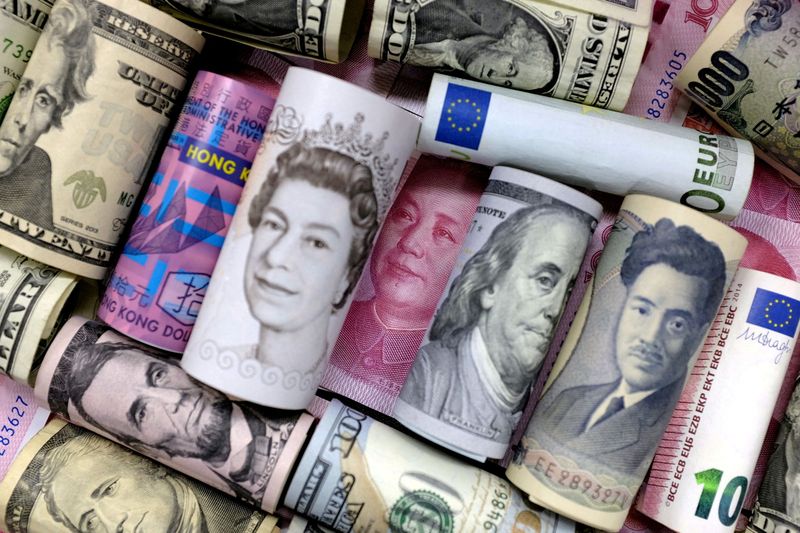By Kevin Buckland
TOKYO (Reuters) - The U.S. dollar remained under pressure on Friday, a day after the Bank of England and European Central Bank adopted more hawkish stances than markets had expected, giving a boost to sterling and the euro.
The dollar index, which measures the currency against six major peers including the euro and British pound, started the Asian session at 95.933 following a 0.61% two-day slide that took it as low as 95.850 on Thursday for the first time since Dec. 8.
Sterling edged up to $1.33305, after surging as high as $1.33755 for the first time since Nov. 24 in the previous session, when the BoE surprised most market participants to become the first major central bank to raise interest rates since the beginning of the pandemic.
The euro held about steady at $1.13315 after touching the highest this month at $1.13605 0.5% after the ECB outlined plans toward removing stimulus over coming quarters, although it also emphasized policy flexibility.
"A cautious ECB taper and a surprise BoE hike likely leaves (the dollar index) heavy near-term, especially given lopsided long USD positioning into year’s end," Westpac strategists wrote in a client note.
"But weakness likely does not extend beyond the low 95s" for the dollar index, with the Fed "streets ahead" of the ECB in terms of the tightening cycle, and dips into the mid-95 level are a buying opportunity, they said.
On Wednesday, the Fed said it would accelerate a tapering of its bond-buying stimulus to end the program in March, setting up three quarter-point rate increases next year. The dollar index initially jumped to a three-week high, before beginning its current slump.
The different paths taken by major central banks underline deep uncertainties about how the fast-spreading Omicron variant will hit economies and about how much each should do to fight surging inflation, which is hitting hard in the United States and Britain, but less so in Europe.
The Bank of Japan announces a policy decision later on Friday, but no change is expected to the core elements of its ultra-loose policy with inflation still stuck well below the central bank's target.

The dollar edged higher to 113.76 yen as the currency largely drifted in a 112.5-114.3 range over the past three weeks.
The risk-sensitive Australian dollar slipped 0.06% to $0.7178, easing back after jumping to a more than three-week high at $0.7224 overnight.